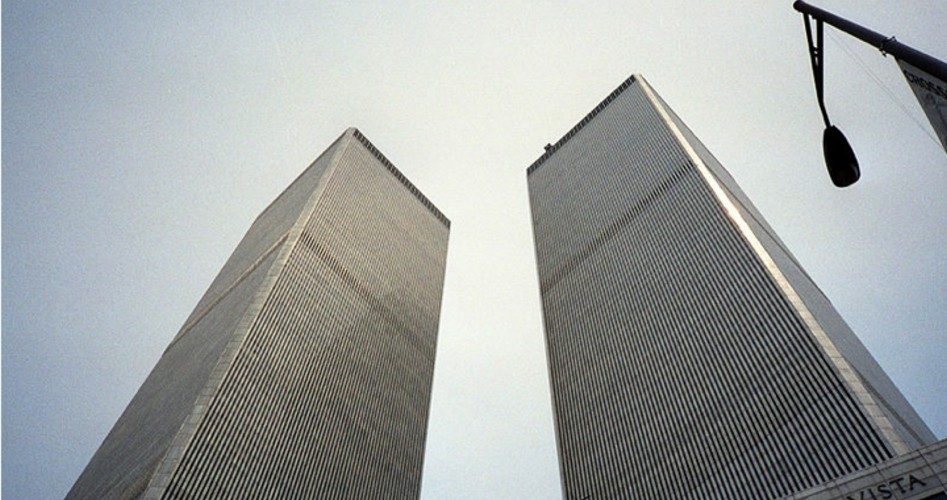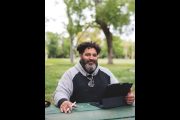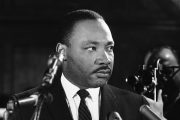
On September 11, 2001, nineteen al-Qaeda terrorists hijacked four airliners and flew three of them into the Pentagon and the Twin Towers of the World Trade Center. The fourth plane, which was reportedly headed to the White House, crashed in a field in Pennsylvania. By days end, almost 3,000 souls had perished and another 6,000 people were injured. The New York city skyline and the American political landscape were both changed. Fifteen years later, it appears that another casualty of that day was privacy. The Twin Towers came down and the surveillance state rose.
Almost immediately after 9/11, a series of events demonstrated that the power-brokers and insiders in Washington never let a tragedy go to waste. The USA Patriot Act was signed into law on October 26, 2001 — just six weeks after the attacks and while Americans were still reeling from the shock. The Department of Homeland Security (DHS) began as the Office of Homeland Security two weeks before the Patriot Act was signed and was made official on November 25, 2002. In the meantime, more and more surveillance cameras began appearing on street corners and government buildings. Under the newly enacted Patriot Act, warrantless wiretapping and surveillance of everything from phone calls to texts to e-mails to Internet browsing histories to which books were checked out from the library became the standard tools of government in the “war on terror.” Anyone who spoke out against the rising surveillance state was quickly accused of not understanding the danger of terrorism or — worse — siding with the terrorists.
In the 15 years since that dreadful day, the surveillance state has risen to a level unimagined by most at the time. Just a brief look at the last two years is enough to cause any concerned patriot to be worried about where the surveillance hawks are taking America. In December of 2014, Judge Richard Posner — a Reagan appointee to the Seventh Circuit Court of Appeals who has been called the most cited legal scholar of the 20th century by The Journal of Legal Studies — said the NSA should have free range to “vacuum all the trillions of bits of information that are crawling through the electronic worldwide networks” adding that the only reason anyone would have for objecting is that they are “just trying to conceal the disreputable parts of [their] conduct.”
In his comments — which were made, ironically, during a panel discussion on “The Future of the Fourth Amendment” at the Georgetown University Law Center’s conference, Cybercrime 2020: The Future of Online Crime and Investigations — Judge Posner went on to say, “Privacy interests should really have very little weight when you’re talking about national security,” because “the world is in an extremely turbulent state — very dangerous.”
What is unfortunately conspicuous about Posner’s comments is that they are not conspicuous at all. Instead, they fit right in with the steady diet of surveillance propaganda being fed to the American mind by politicians, bureaucrats, and the media. That message is two-fold: mass surveillance is the best tool against terrorism, and unless you have something to hide (in other words, unless you are a terrorist) it shouldn’t bother you. Of course both of those points are demonstrably false.
First, mass surveillance is a lousy tool for fighting terrorism for several reasons. For one, terrorists use their own “home-grown” encryption tools for circumventing surveillance. For another thing, if the NSA, FBI, CIA, and other three-letter-agencies are looking for needles in haystacks, adding more hay is not a solution. By focusing their surveillance on any and all, the surveillance hawks limit their chances of actually fighting terrorism to something like lottery odds.
Second, plenty of ordinary non-terrorists have “something to hide.” In fact, everyone does. It’s why we have curtains and blinds over our windows. It’s why we use envelopes for our letters. We know, deep down, that our private lives should stay private. What happens when you need to do an Internet search for an embarrassing medical question? What about a private, intimate text to your spouse? What about that phone call where you argue with your spouse? We do these things in private because they are private. And they ought to stay that way.
And, just to put in the for-what-it’s-worth column, mass surveillance has not stopped major terror attacks in even recent years with the surveillance state operating overtime. In fact, think of the attacks right here in America in the past few years; the 2013 Boston Marathon bombing, the 2014 Garland, Texas shooting at the “Draw Muhammad” cartoon exhibit, the 2015 Chattanooga shootings at military recruiting stations, the 2015 San Bernardino shootings, the 2016 shootings at an Orlando, Florida nightclub, the ambush style murders of police officers across the country including those in Dallas, Texas and Baton Rouge, Louisiana. Not to mention the hundreds of terrorist attacks in other parts of the world including France, Germany, the Philippines, the United Kingdom, and almost everywhere in the Middle East. If mass surveillance is the answer, why has it failed to uncover and prevent these attacks? Even with what almost everyone now knows about the state of the surveillance state in the wake of both the revelations made by Ed Snowden three years ago and the subsequent leaks and reports since then, CIA Director John Brennan said the attacks on Paris last year were the result of too little surveillance. Too much, it appears, is never enough for the surveillance hawks. Even when it doesn’t work, they can’t admit the simple fact that it can’t work, they simply say more is needed.
What mass surveillance has managed to accomplish — at least in large part — is the erosion of the idea of privacy and liberty. Many Americans have come to accept the practices of being stripped (whether literally or digitally) or groped before being allowed to board a plane. Many have come to expect that their every web search, e-mail, phone call, text, and other communications will be logged and monitored. In fact, a report released last year by the Pew Research group revealed that fifty-five percent of the experts surveyed by the report do not believe that there will be an infrastructure of privacy rights within the next decade. Only 45 percent believe things will get better.
So, while terrorism — and the war on terrorism — continues, surveillance is becoming the norm. Police departments all over the nation are using cell-site simulators to vacuum up all mobile phone traffic within range, in violation of the Fourth Amendment. The NSA and other agencies routinely capture all communications and web traffic. The federal government has ended the cease-fire in the Crypto-Wars and is seeking to circumvent or outright ban the technology which allows private communications.
The mantra in the months following 9/11 was “If we (fill in the blank), the terrorists have won!” This was used to try to convince Americans to buy new cars, build houses, take vacations, and accept the surveillance that was increasing (but was not fully understood until Snowden). The truth though, is that if we accept the surveillance state, the terrorists have won. Consider the chilling words of terrorist leader Osama bin Laden who, in an interview with Al-Jazeera in the weeks after 9/11, gloated, “I tell you, freedom and human rights in America are doomed.” He added, “The U.S. government will lead the American people in — and the West in general — into an unbearable hell and a choking life.”
On the 15th anniversary of the day America changed, Americans who still care about liberty and privacy must redouble their efforts to maintain and restore those God-given rights. Because the alternative is that the legacy of 9/11 will be bin Laden’s “unbearable hell” and “choking life” under constant surveillance.




